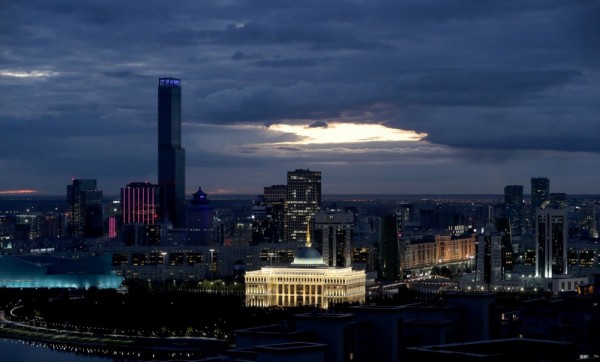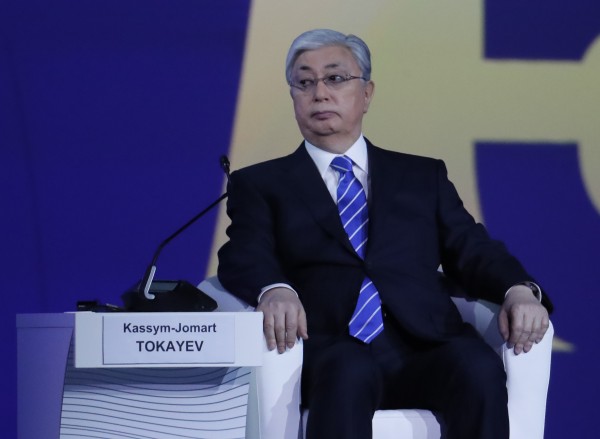<strong>One journalist has died and several have been injured in Kazakhstan during the past week’s unrest. Multiple journalists have been arrested. IPI calls on the authorities in Kazakhstan to immediately free all arrested journalists and respect media freedom. The safety of all media professionals must be guaranteed and journalists must be free to do their work without interference.</strong>
Protests erupted in the city of Almaty in Kazakhstan on January 2 after the government decided to raise the price of liquefied petroleum gas. The protests are a result of longstanding issues in the country, including corruption, income inequality, and economic hardship. Kazakhstan is rich in natural resources, but only a small elite has benefitted from them. The discontent with the government soon turned the protests into <a href=”https://www.bbc.com/news/world-asia-59927267″>the worst unrest</a> the country has seen in decades.
On January 7, a staff member of Almaty TV was <a href=”https://ipi.media/kazakhstan-ipi-condemns-death-of-media-worker-killed-amidst-protests/”>killed</a> on duty as his crew came under fire, as IPI previously reported. A camera operator of Almaty TV was also injured and hospitalized. Russian journalist Vasily Polonsky and photographer Vasily Krestyaninov were shot at as they were filming in Almaty on January 8. They were working for the independent Russian television broadcaster Dozhd. Neither of them was injured in the incident.
The protests have led to the death of 164 persons and almost 8,000 people are currently detained. During the protests, internet connections were widely disrupted for multiple days, making it harder for both international and local media to deliver up-to-date information.
<h2><strong>IPI condemns multiple arrests of journalists </strong></h2>
Local media have reported multiple arrests of journalists. On January 7, journalist Lukpan Akhmedyarov was arrested in the city of Uralsk in Western Kazakhstan and sentenced to detention for 10 days. He is the former chief editor of independent weekly newspaper Uralskaya Nedelya. <a href=”https://fergana.media/news/124608/”>Media reported</a> that he was arrested for taking part in an “illegal gathering”. On January 10, Akhmedyarov unsuccessfully appealed to a local court for his release.
Darin Nursapar, the editor-in-chief of local online news platform Altaynews.kz, was <a href=”https://rus.azattyq.org/a/31649090.html”>sentenced</a> to 15 days of detention for “illegal public activity”. He was arrested in his home on January 7, a couple of days after he posted a video on his Facebook page of a meeting in the city of Ust-Kamenogorsk in Eastern Kazakhstan.
Freelance reporter Stanislav Obishchenko was <a href=”https://www.rt.com/russia/545454-rt-freelance-reporter-detained-almaty/”>detained</a> on January 8 while covering the protests for RT. According to an RT producer, Obishcenko was made to kneel by members of the military, threatened with a rifle, and forced into a vehicle. He was released from detention later that day.
Journalist Mahambet Abzhan has been missing for several days. He was reporting from the protests in Nur-Sultan, the capital of Kazakhstan. According to <a href=”https://rus.azattyq.org/a/31647551.html”>local media</a>, police came to his home during the night of January 5 and demanded to be let in, which Abzhan refused. Abzhan left his home during the day on January 7 and his relatives have not been able to contact him since.
<h2><strong>Media suppression fuelled by political turmoil</strong></h2>
Kazakh President Kassym-Jomart Tokayev has <a href=”https://apnews.com/article/kazakhstan-europe-national-security-terrorism-2c026ecb00584aba668f320d4482d0f1″>referred</a> to the protestors as terrorists and authorized the shooting of people taking part in the violence. He also requested military assistance from the Collective Security Treaty Organization (CSTO), with Russian-led troops arriving to quell the unrest. On January 5, authorities declared a state of emergency in the country until January 19.
On the same day, the Ministry of Information published a <a href=”https://www.gov.kz/memleket/entities/qogam/press/news/details/309340?lang=ru”>warning</a> regarding the media’s work during the state of emergency in the country. According to the statement, actions of the press that conflict with the law and order of the country are punishable by fines or detention. The statement also warns the media against publishing false information or any information that might endanger the peace in the country. The ministry ended the statement by saying it will closely monitor the media.



